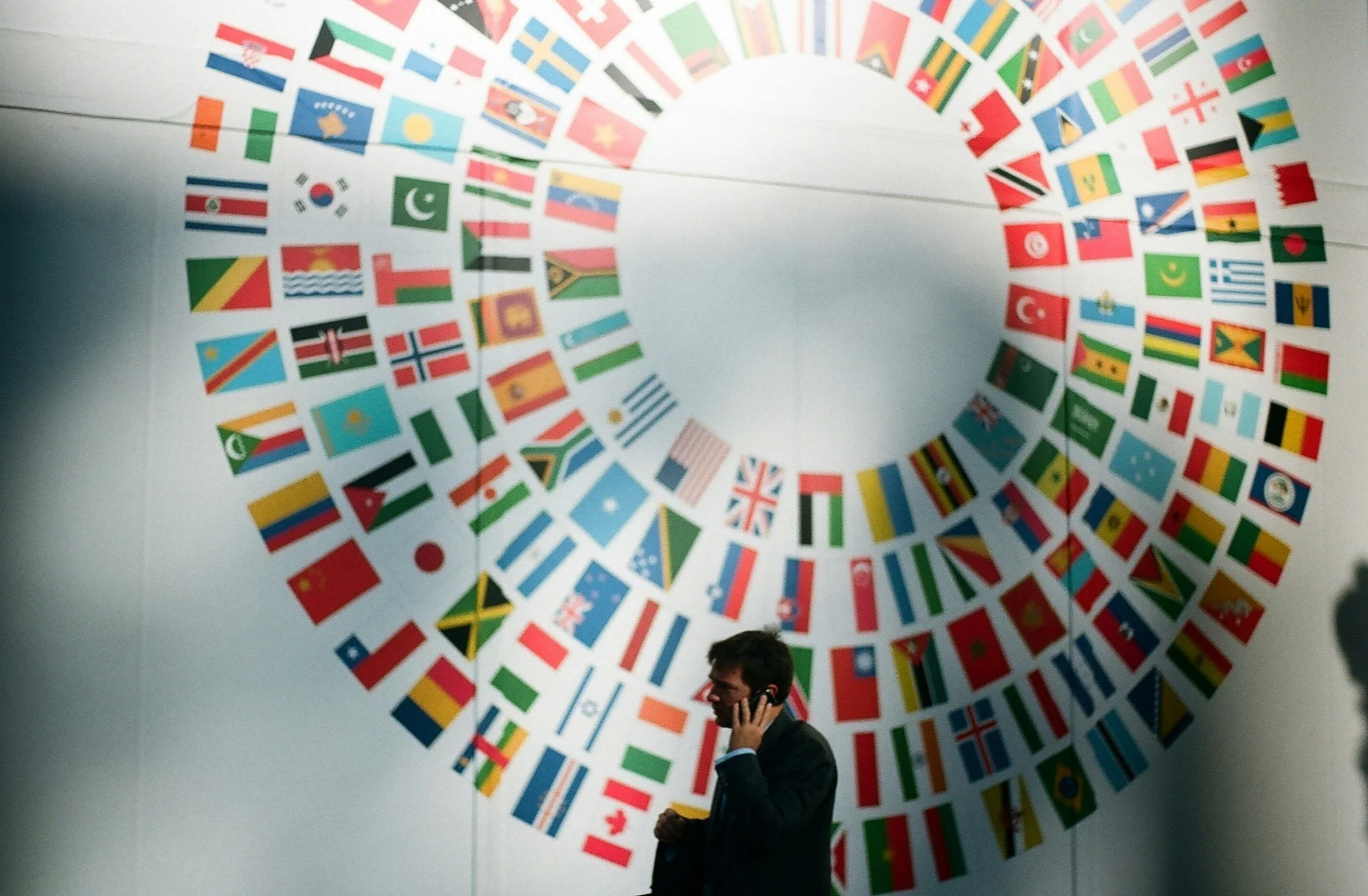The post-Cold War order that previously was predominated by the United States and placed in ideological camps is no longer dictating the reality of international politics. The world of the 21st century is becoming more multipolar and the alliances that define it are not based on ideology but rather on interests. In place of long-term commitments to common values, states are now seeking partnerships in the form of flexible, transactional alliances, joining and leaving according to immediate requirements. This complicates and makes diplomacy more dynamic and uncertain.
The NATO of the Cold War was based on the similarity of democratic identity; the Warsaw Pact was anchored on the communistic system. The demarcations are, however, dimmed nowadays. The nations that theoretically should be the competitors tend to collaborate, whereas formal allies tend to fight each other. A member of NATO, Turkey has bought modern air defense equipment from Russia while mediating between Moscow and Kyiv. These examples demonstrate the instability of the current age: alliances are no longer indicators of permanent devotion but a change of interests.
This has been increasing at a higher pace over the past two years. The cohesion was demonstrated by the enlargement of NATO in 2023–24 when Finland and Sweden joined the alliance as a reaction to the Russian actions. But it disclosed divisions also. As of 2024, the issue of the balance between deterrence and dialogue has become a conflict, as Western Europe favors the diplomatic course and Eastern Europe requests more aggressive military guarantees. Uncertainty has further been created by the 2025 arguments on defense budgets and burden-sharing, especially with political changes in the United States.
Outside NATO, the emergence of regional coalitions is eminent. In January 2024, BRICS grew exponentially as Saudi Arabia, the UAE, Egypt, Ethiopia, and Iran joined. The demand to have more voice was observed in this development of the Global South. By 2025, debates about the need to stop relying on the U.S. dollar as a means of trade have shifted to the realm of policy debate. China has led in driving such initiatives and providing economic models that most states are enticed by. Meanwhile, the QUAD has won over the Indo-Pacific. Its 2024 summit in Tokyo also highlighted maritime security and new technologies, and in 2025 its agenda extended further to supply chain resilience and artificial intelligence governance. The outcome has been an increasing mosaic of alliances, which cater to local needs and not to global ideological agendas.
But weakness prevails in these groupings. In BRICS, India feels threatened by the expanding role of China, whereas Brazil and South Africa are too apprehensive to transform the entity into an overtly anti-Western union. Among the NATO members, there are still disagreements regarding defense expenditure and strategic independence. The Gulf Cooperation Council, though it reconciled with Qatar in 2021, still has the problem of trust deficit. Even the African Union, which received an international identity with its admission to the G20 in 2023, has a problem with conflicting stances on political crises. These cracks underscore the fact that although multipolarity is flexible, it is disintegrating unity.
India demonstrates well the contradictions of multipolar alliances. It is able to gain the short-term advantages of all parties through its approach of hedging between the competing camps. It has high defense relationships and technology collaboration with the United States, and also has wide-ranging energy and weapons relationships with Russia. But such an attitude creates ambiguity. The balancing act in India makes it hard to act collectively in crisis situations because the country is not ready to fully be on the same page, which erodes the confidence of its partners. Instead of being part of stability, India’s ambiguity adds more unpredictability to the already vulnerable multipolar political landscape.
In comparison, Pakistan shows how the middle powers are able to convert multipolarity into a strategic opportunity. Islamabad has been able to diversify its relations in a queer way. It has security and development consultations with Washington, has increased defense collaboration with Türkiye, which includes MILGEM warships and drone technology, and has increased its conventional security collaboration with Saudi Arabia through a formal defense pact signed in 2025. Meanwhile, Pakistan has been very careful in its dealings with Iran, holding security discussions despite occasional border friction, demonstrating that pragmatism may exist alongside hostility. Such diversification provides Pakistan with space to maneuver, so that it is not tied to any particular great power. More to the point, it makes Islamabad a case study of versatile diplomacy, juggling between various affiliations and establishing a national interest that expands as much as it can in the unstable world, leaving the door open to opportunities.
Additional examples of fluid alignments are provided in the Middle East. In 2023, Saudi Arabia and Iran, using Chinese mediation, restored diplomatic relations long after a bitter fallout between these two states. They are reserved allies, working together as BRICS but still competing in regional arenas by 2025. Turkey is set between the East and the West, a member of NATO, and a negotiator with Russia simultaneously. These states reflect the multipolar reasoning: alliances are instrumental, usually short-lived and do not always include long-lasting trust.
The position of great powers, especially the United States and China, is decisive. Washington has strengthened NATO and developed Indo-Pacific coalitions, whereas China has increased its power by means of economic statecraft and institution-building. They are each promising different types of incentives: security assurances and technological cooperation by the U.S., and economic prospects and regional dispute resolution by China. The logical option of many states is to enjoy the two at the same time, hence further undermining the idea of the old blocs.
Russia is still a key player, but in many ways it has been characterized by its conflict with the West rather than by new institutional projects. Its special military operation in Ukraine has changed the balance of European security and revealed the weaknesses of Russian power. Multipolar diplomacy has enabled Moscow to retain alliances with states that have not been keen on cutting ties, yet it is no longer a main pole of attraction as China or the United States.
Alliances are fluid, complicating world governance. Climate change, cybersecurity, and health security demand long-lasting collaboration, but multipolarity results in haphazard and short-term actions. Paris Agreement targets are not achieved yet as of 2024, cybersecurity frameworks continue to be uncoordinated, and in 2024 the global health response to emergent threats illustrated the same picture of nationalist interests taking precedence over collective responsibility. Flexible alliances can be quick to react to ad hoc demands, however, they tend to lack the institutional capacity to act long term.
Yet there are opportunities. Multipolarity gives an opportunity to middle powers such as Pakistan, Saudi Arabia and Turkiye to be more assertive, with regional organizations such as the African Union and ASEAN gaining new status. Those states that learn to reconcile transactional diplomacy with viable commitments will determine the provisions of the emerging order.
The days of the unipolar domination of the U.S. are past, and the Cold War-like bipolarity is not likely to be repeated. The future is the world of multipolar pragmatism, in which alliances will be an instrument of convenience to be used but not professed. States might cooperate in one sphere and compete in another; they might be cooperative in energy and antagonistic in technology. The victory will not be based on ideological purity but on diplomatic dexterity. Individuals who learn to be flexible and still reliable will form the future. The days of long-term friends or long-time foes are over; the days of tactical flexibility have commenced.
The views expressed in this article are the author’s own. They do not necessarily reflect the editorial policy of the South Asia Times.







![Prime Minister Narendra Modi with External Affairs Minister S. Jaishankar at an official event. [Photo Courtesy: Praveen Jain via The Print].](https://southasiatimes.org/wp-content/uploads/2026/02/20-scaled-e1755601883425-1024x576-1.webp)